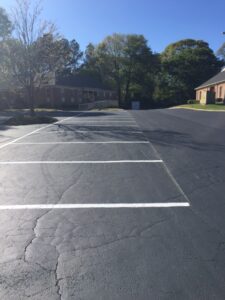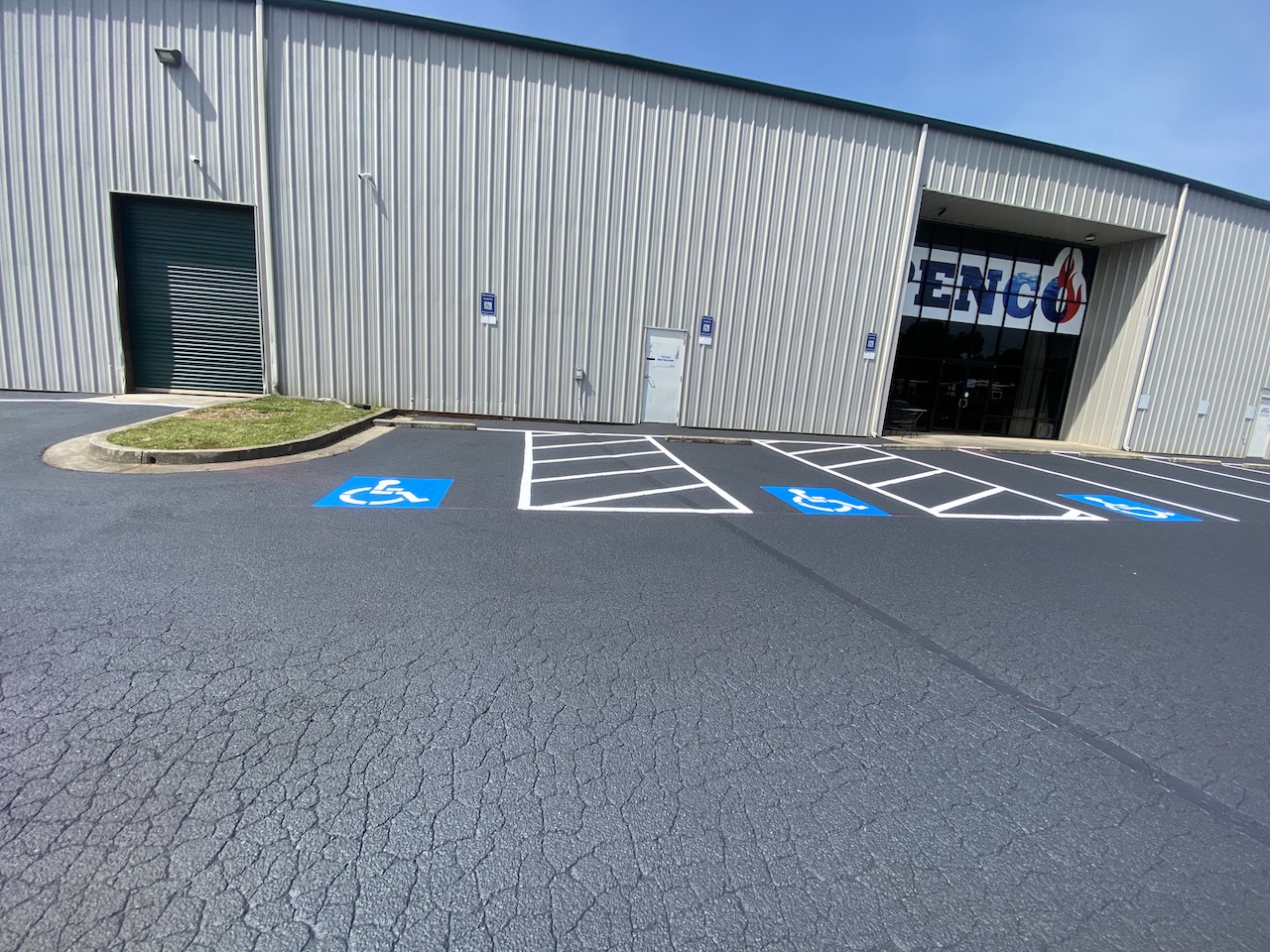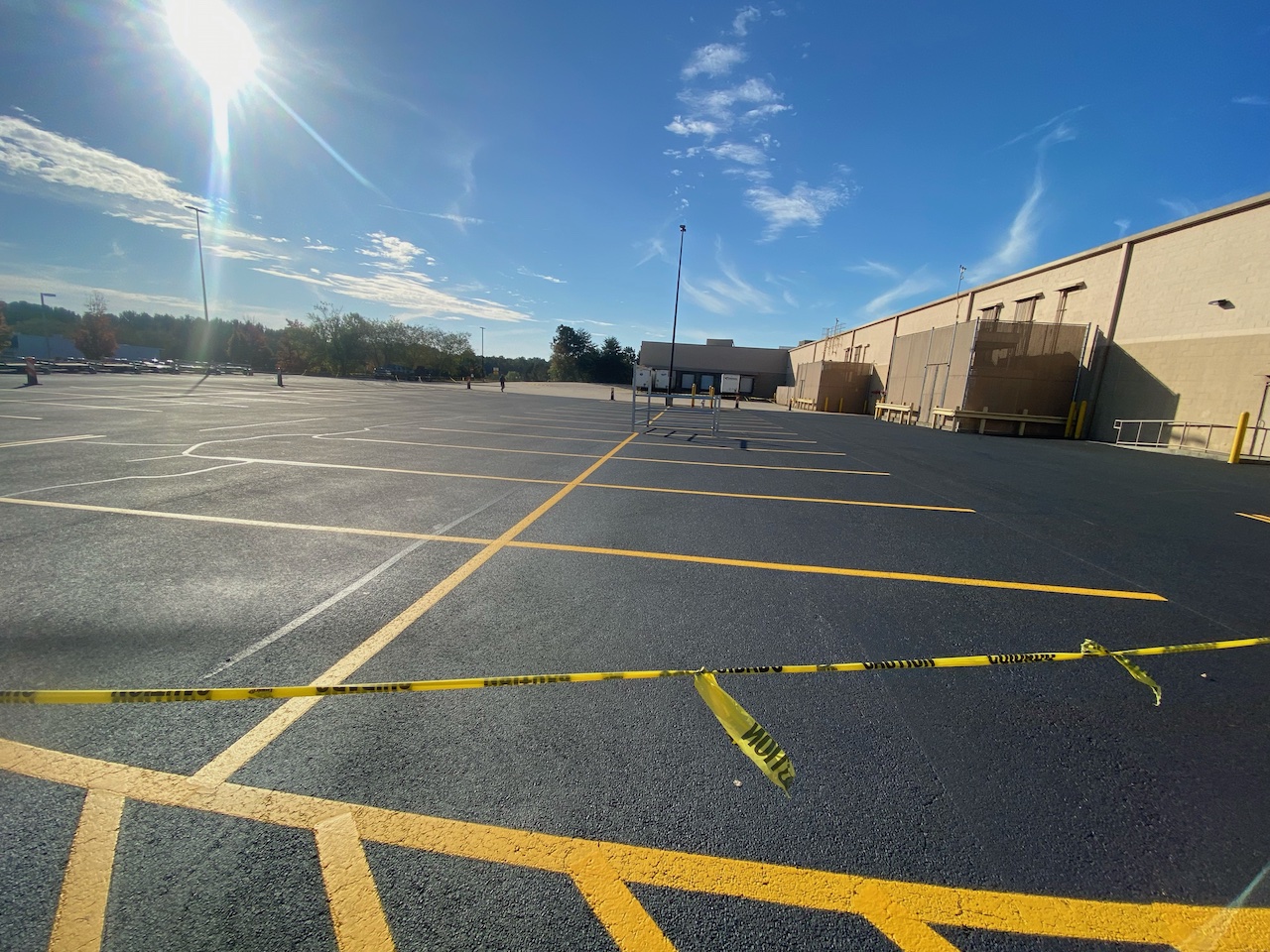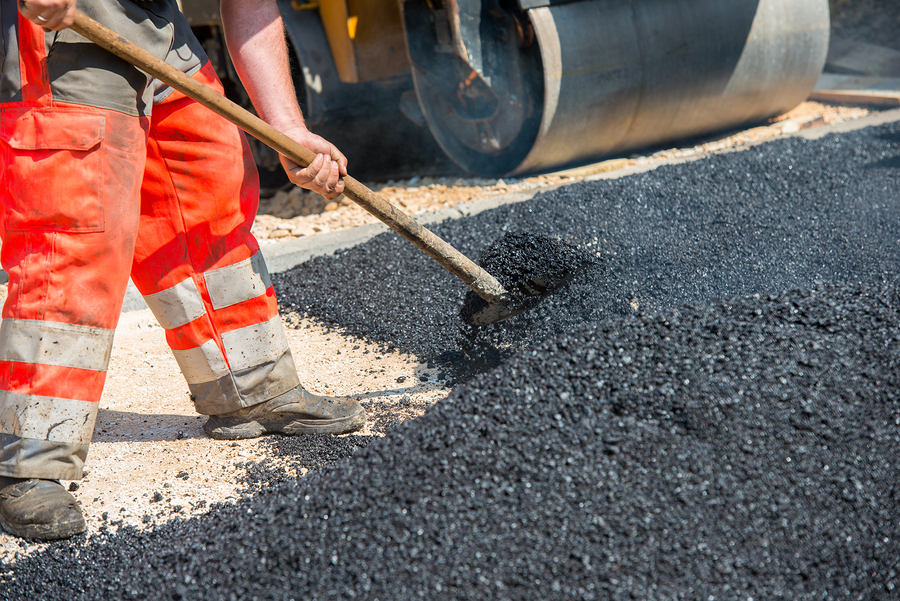
What Is Sealcoating?
Sealcoat, also known as asphalt sealer or sealant, typically arrives at the contractor’s yard in the form of bulk. The contractor mixes the dry sealant with water, sand, and any necessary additives to create a liquid. This liquid is then applied to asphalt pavement. As the sealant cures, it establishes a strong bond with the pavement and forms a tough shell over the top of the pavement. Although sealants offer significant cosmetic advantages, their actual value lies in their ability to protect the pavement from damage. Sealants screen out harmful radiation from the sun, help prevent oil and other chemicals’ damage, enhance the pavement’s waterproofing qualities, and reduce the likelihood of damage from hot tires.
What Is the Best Temperature to Apply Parking Lot Sealcoating?
The ideal temperature to apply asphalt sealants is 70 degrees Fahrenheit. However, sealant manufacturers know that ideal conditions are often elusive, providing a range of acceptable temperatures. High temperatures are typically not a problem, but parking lot maintenance companies may need to take steps to cool down a pavement before applying a sealant once temperatures approach triple digits. The big problem is cold. Sealants should not be applied if the weather is less than 50 degrees Fahrenheit. Furthermore, the temperature should not fall below 50 degrees until the sealant has cured. Because other factors affect the curing process, the weather may need to be above 50 degrees before your paving maintenance contractor proceeds with the sealant application.
Why Is Cold a Factor for Parking Lot Sealcoating?
Asphalt sealants are about 70% water by volume, and this water must evaporate for the sealant to cure. The rate of evaporation is directly impacted by temperature, and the rate slows as temperatures drop. However, other factors influence the rate of evaporation. High humidity levels slow evaporation, a slight breeze can increase evaporation, and clouds or shade can slow evaporation. The evaporation starts with the top layer, so sealants can feel dry to the touch after the top layers have cured, but the underlying layers may still be liquid. At best, the sealcoat will take two or three times as long to cure, delaying your ability to reopen your parking lot to traffic safely. At worst, the trapped sealant may move and crack the top layers that have already dried; if it freezes, the entire job could be ruined when the sealant breaks its bond, flakes, and is washed or blown away.
MH Greeson Understands the Intricacies of Applying Asphalt Sealants
At MH Greeson, we are experts in all procedures needed to maintain your asphalt pavement, including parking lot sealcoating, crack repair, parking lot striping, patching, traffic signs, bollard installation, ADA compliance, and wheel stop installation. We have earned our exceptional reputation by consistently providing high-quality work at affordable prices. For a free quote, fill out the online form or call our headquarters in Marietta at 770-335-2983.




